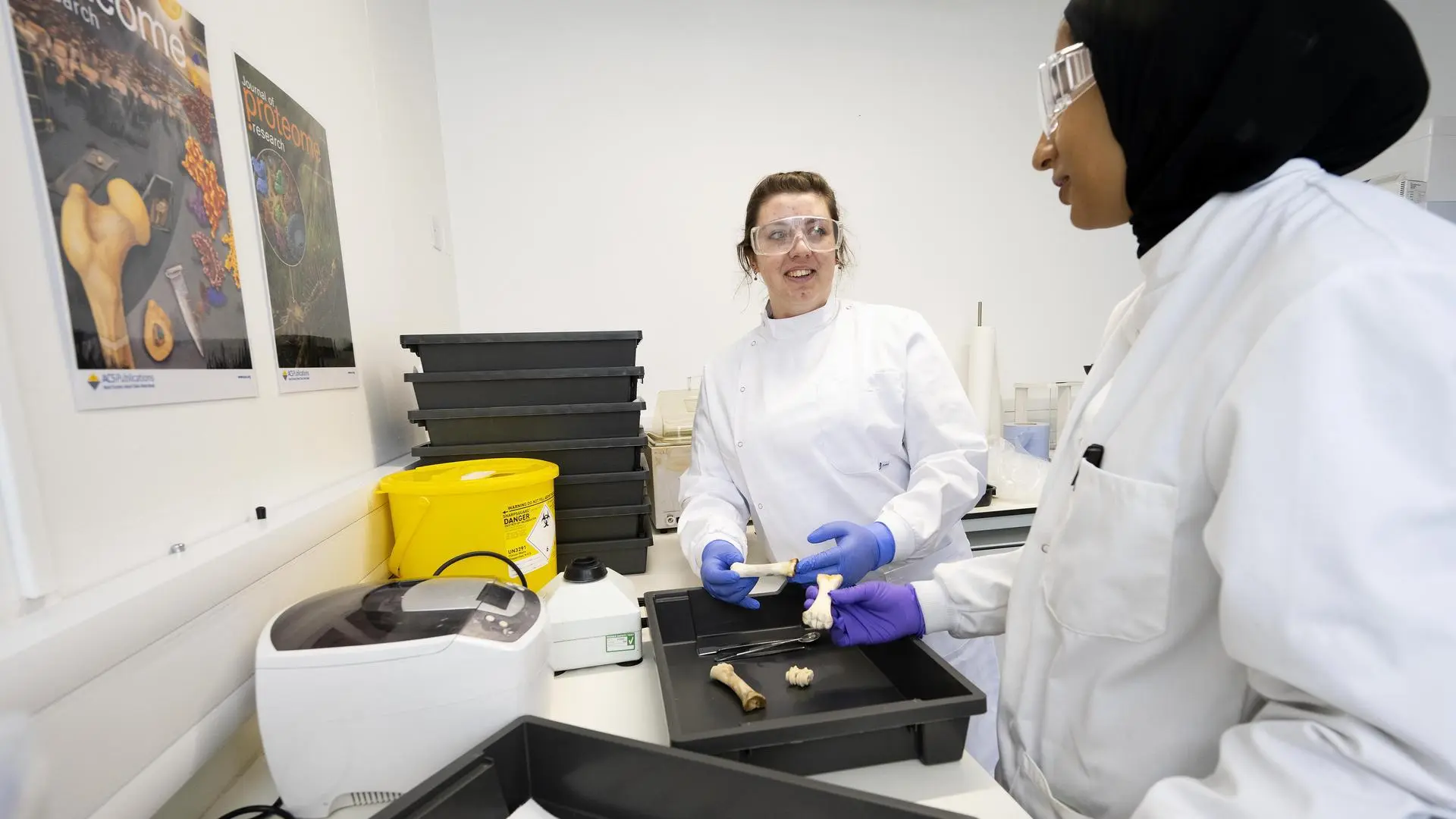TRACES
In consultation with local authorities, the Environment Agency and Animal Health, an executive agency of the Department for Environment, Food and Rural Affairs (DEFRA), the UCLan School of Forensic and Investigative Sciences established the Taphonomic Research in Anthropology: Centre for Experimental Studies (TRACES), in May 2009.

TRACES comprises 13 acres of land and associated facilities across the North West of England and is the first facility in the UK dedicated to the experimental study of forensic taphonomy using animal models. Find out more about the TRACES facility.
The mission of TRACES is to advance research in forensic anthropology and forensic taphonomy, and its application to the legal system and human identification. TRACES conducts basic and applied research in forensic entomology, decomposition processes and forensic genetics (DNA degradation and entomological DNA). Its objectives are to promote education, conduct well designed and controlled experimental taphonony and to encourage collaboration with other institutions and organisations.
TRACES currently conducts experiments in all aspects of decomposition, trauma, forensic entomology, and forensic DNA using animal models. The staff at TRACES are interested in conducting parallel experiments with similar centres elsewhere.
The facility encompasses a 13 acre outdoor research area, indoor work area, a teaching room and office. The centre supports postgraduate research undertaken by students on the MSc Forensic Anthropology and Forensic Genetics courses and by the School's PhD research students. TRACES also welcome external researchers.
The TRACES site, and/or the expertise of its staff, is available for hire by researchers who wish to conduct taphonomic studies concerning case-related questions but lack their own facilities.
Widya, M., Moffatt, C. and T. Simmons 2012 . Journal of Forensic Sciences.The formation of early stage adipocere in submerged remains: a preliminary experimental study
Gruenthal, A., Moffatt, C. and T. Simmons 2011 s. Journal of Forensic Sciences.Differential Decomposition Patterns in Charred Versus Un-Charred Remain
Simmons, T., Cross, P., Adlam, R. and Moffatt, C. 2010 . Journal of Forensic Sciences 55(4): 889-892The influence of insects on decomposition rate in buried and surface remains
Bachmann, J. and Simmons, T. 2010 . Journal of Forensic Sciences 55(4): 893-900The influence of pre-burial insect access on the Decomposition Rate
Heaton, V., Lagden, A. Moffatt, C. and Simmons, T. 2010 s. Journal of Forensic Sciences 55(2):302-307Predicting the Post-Mortem Submersion Interval for Human Remains Recovered from UK Waterway
Cross, Peter A. and Simmons, T. 2010 . Journal of Forensic Sciences 55(2):295-301The Influence of Penetrative Trauma on the Rate of Decomposition
Simmons, T., Adlam, R., and Moffatt, C. 2010 . Journal of Forensic Sciences 55(1):8-13.Debugging decomposition data – comparative taphonomic studies and the influence of insects and carcass size on decomposition rate
Cross, P., Simmons, T., Cunliffe, R. and Chatfield, L. 2009 . Forensic Science Policy and Management 1(4): 187 -191Establishing a Taphonomic Research Facility in the United Kingdom
Smith, J. and Godfrey, H. 2009 . Antenna (Bulletin of the Royal Entomological Society) 33(2):81-86The Application of Genetics in Forensic Entomology
Adlam, R. and Simmons, T. 2007 Journal of Forensic Sciences 52(5): 1007-1014.The effect of repeated physical disturbance on soft tissue decomposition – are taphonomic studies an accurate reflection of decomposition?
The School of Forensic and Investigative Sciences offers a number of undergraduate degree programmes and taught postgraduate courses in Forensic Anthropology and Forensic Genetics.
- BSc (Hons) Forensic Science
- BSc (Hons) Forensic Science and Criminal Investigation
Advisor: Andrew Melling
Andrew Melling is a practicing Veterinary Surgeon, in a large animal practice. He provides advice on issues relevant to the activity of TRACES, such as bio-security, animal ethics and welfare.
For further information about TRACES, short courses, research, hiring of our facility or any other enquiry, please contact:
